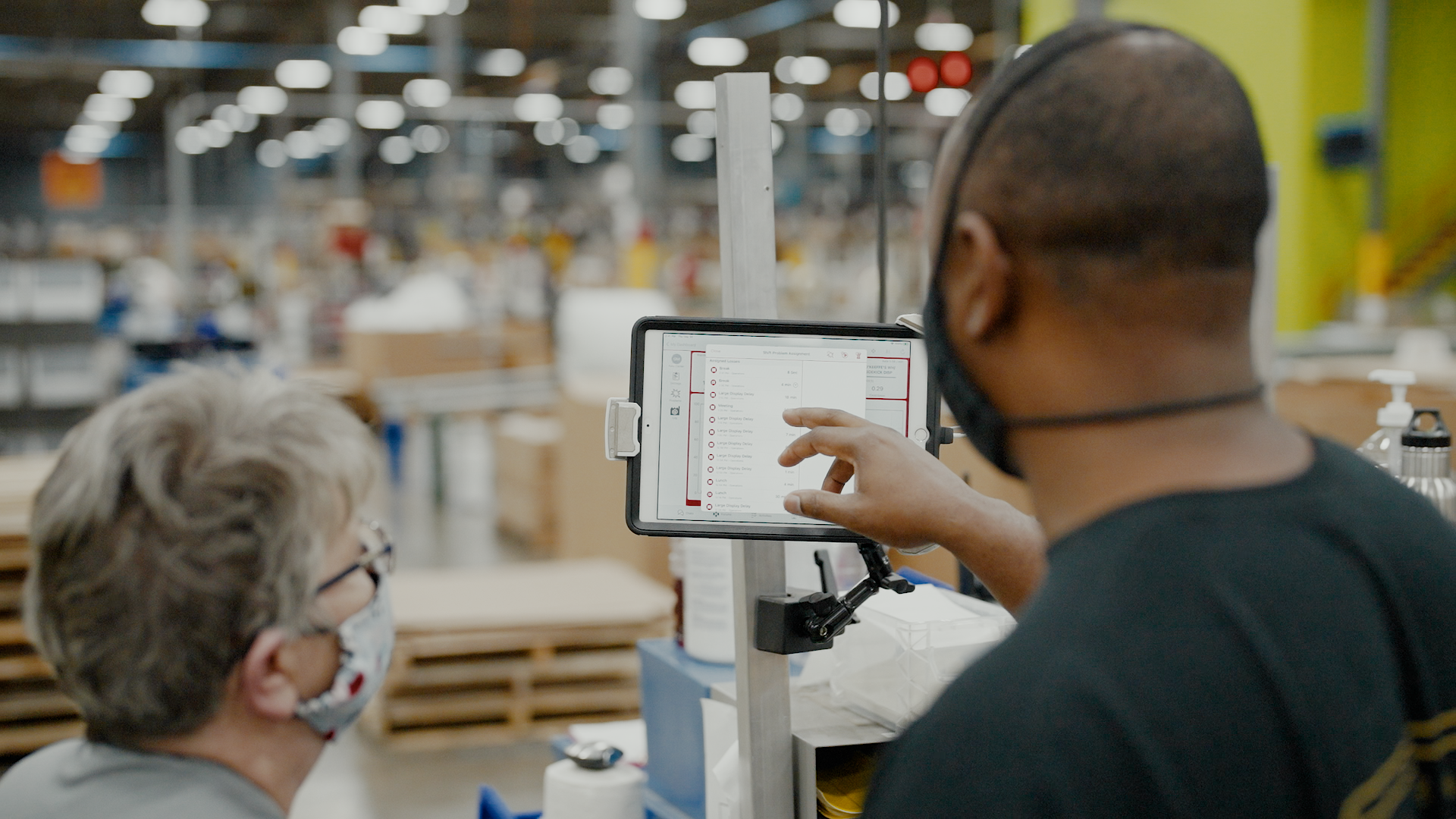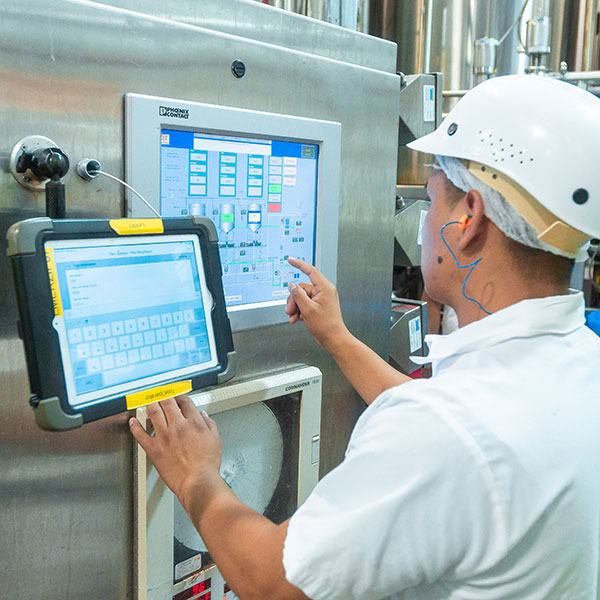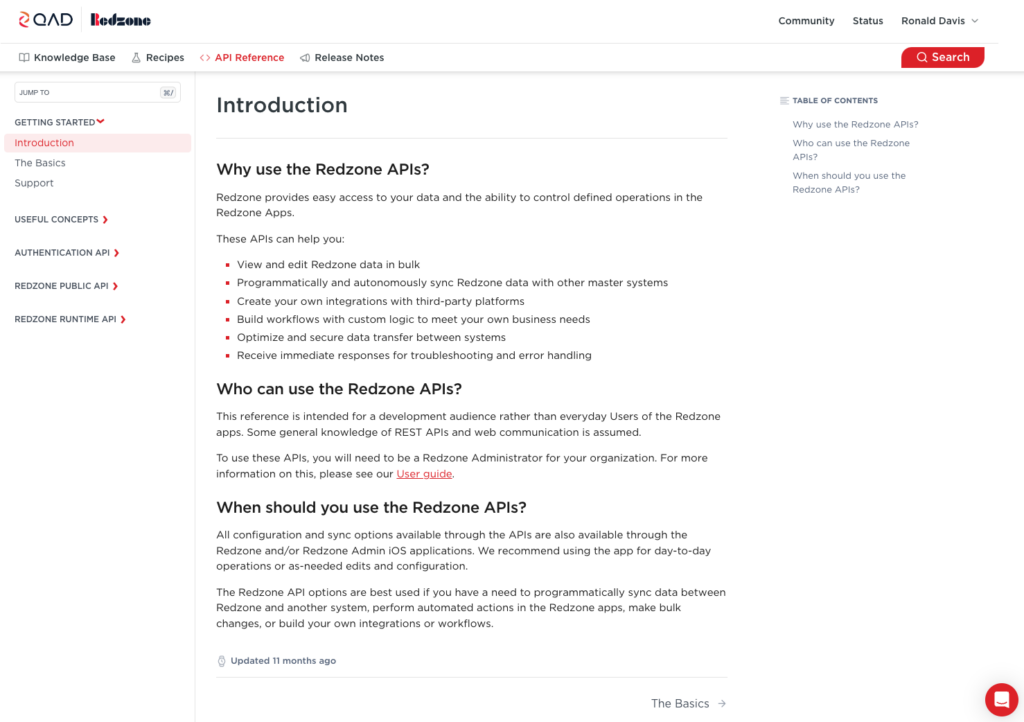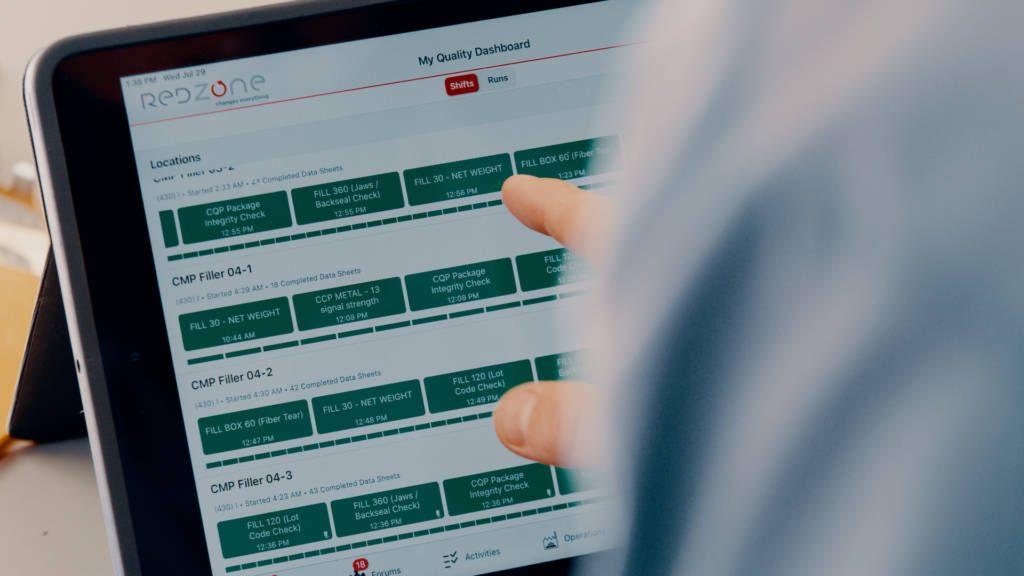For those that want to connect, we make integration a breeze.


Redzone’s APIs, coupled with standard authentication and our Developer Hub, facilitate IT/OT convergence.
All our work follows technical standards and leverages industry-leading technology to enable effective IT/OT convergence. If you already have a digital strategy, we should fit right in.

At Redzone, we understand that integration—and achieving true IT/OT convergence—can be complex. Our Developer Hub simplifies those automation workflows.
With our Developer Hub, built to accelerate IT/OT convergence, you have interactive API documentation (OpenAPI), examples for common tasks, and copy-paste code examples.
Powered by OAuth, control Redzone authentication and access seamlessly using your existing identity provider.
Enhance with role-based access control (RBAC) for full control of system access and privileges. We support identity providers such as Active Directory/LDAP, Azure Active Directory, Google Workspace, OpenID Connect, Okta, and traditional SAML.

IT/OT convergence refers to the strategic integration of information technology (IT) systems—such as enterprise software, data platforms, and analytics—with operational technology (OT) systems used on the manufacturing floor. This makes data available in a centralized platform and improves visibility, alignment, and decision-making across the entire production environment.
Implementing a successful IT/OT convergence strategy requires more than just connecting systems—it demands a structured approach that considers how people, processes, and technologies work together across your organization. To better understand this, IT/OT convergence can be broken down into three key types:
This involves aligning workflows, objectives, and operational procedures across IT and OT teams. When processes are unified, organizations achieve better visibility, collaboration, and faster decision-making. It’s a critical first step in enabling cross-functional coordination between departments.
In this type of convergence, IT systems like ERP and analytics platforms are integrated with OT systems such as SCADA and PLCs. The goal is to create a seamless, scalable architecture where data flows freely and securely between systems—enabling advanced use cases like predictive maintenance, real-time monitoring, and AI-driven optimization.
Physical convergence connects the underlying infrastructure—devices, sensors, networks, and hardware—used across both IT and OT environments. This includes IoT-enabled machinery and edge computing devices that help bridge data collection on the plant floor with cloud-based platforms and centralized systems.
By addressing all three types of IT/OT convergence, manufacturers can develop a more resilient, agile, and efficient operational framework. This layered approach supports a long-term IT/OT convergence strategy that scales with evolving technologies and business goals.
For manufacturers whose digital transformation includes IT/OT convergence, understanding the requirements and value of each type helps teams develop an effective plantwide strategy.
For modern manufacturers, IT/OT convergence is more than a technology trend—it’s a strategic advantage. By synchronizing these environments, businesses can:
This approach also fosters stronger collaboration between IT and OT teams—removing silos and enabling unified workflows.
Redzone supports OT/IT integration as part of its broader support of engineering and IT initiatives. Redzone customers can choose to what extent they pursue OT/IT integration in their factories. It’s important to note that integration is not required to deploy Redzone and realize productivity uplifts. There are a variety of shop floor use cases that are especially fitted to integrations and complement a Redzone deployment. For example:
Achieving IT/OT convergence starts with understanding your current IT and OT systems, identifying disconnects, and choosing integration tools that allow seamless data exchange. It also involves developing a unified mindset across departments, selecting scalable technologies, and aligning your strategy with long-term operational goals.
In the context of industrial operations, convergence in IT refers to the process of integrating different technologies—particularly information and operational systems—to streamline workflows, share data, and enable smarter decision-making. IT/OT convergence is a specific form of this, focused on connecting enterprise and plant-level technologies.
The integration of IT and OT—commonly referred to as IT/OT convergence—is the process of connecting data-centric IT systems with process-driven OT systems. This allows organizations to gain full visibility across their operations, automate control systems, and improve efficiency through synchronized workflows.
IT/OT convergence in manufacturing allows companies to make faster, data-informed decisions, reduce downtime, automate processes, improve asset utilization, and adapt more quickly to production demands. It also supports compliance, traceability, and centralized process control across both digital and physical environments.
It’s important to note that integration is not required to deploy Redzone or realize productivity uplifts. Redzone supports IT/OT convergence as part of its broader support of engineering and IT initiatives. Factories that have IT/OT convergence as a corporate goal will find Redzone complementary to that goal. Redzone has a broad range of integration capabilities such as data-laking, API integration, PLC and edge device connectivity to support customers with their productivity and IT/OT initiatives.